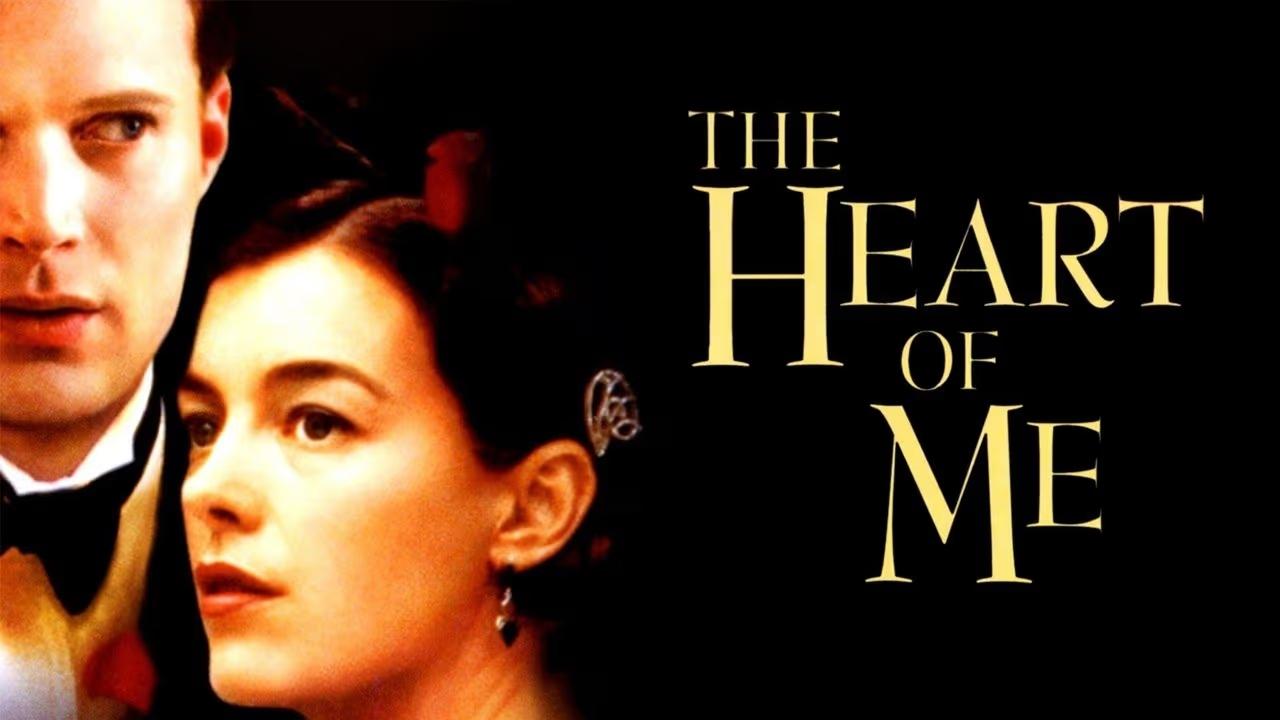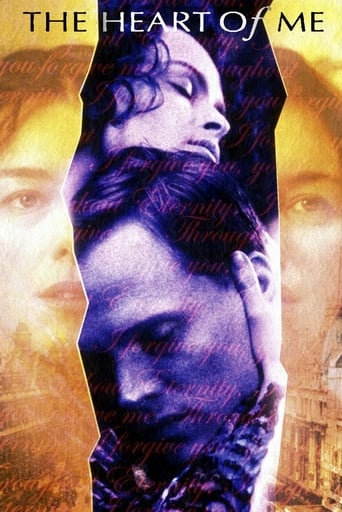


Save your money for something good and enjoyable
... View MoreAlthough I seem to have had higher expectations than I thought, the movie is super entertaining.
... View MoreOne of the most extraordinary films you will see this year. Take that as you want.
... View MoreThis is a coming of age storyline that you've seen in one form or another for decades. It takes a truly unique voice to make yet another one worth watching.
... View MoreThis is everything one could possibly want a modern British period film to be: brilliant, sensitive, perfectly made, enthralling, revealing, informative, stimulating, and inspired. Did I forget anything? Oh yes, the wonderful script, cinematography, editing, costumes, sets, props, and just about anything else you care to name. The director is an inspired Irishman named Thaddeus O'Sullivan. And why has he not won an Oscar and is not making Hollywood blockbusters at a hundred million dollars a pop? Well, because he is too talented and real, that is why. The performances are magnificent and sublime. 2002 was a bumper year for Helena Bonham Carter, when she delivered possibly the two finest performances of her distinguished career. Maybe because she had found personal fulfillment with Tim Burton the year before, it was in 2002 that she made first this film and then 'Till Human Voices Wake Us', in both cases delivering performances which are staggering emotional masterpieces of the acting art. I wish she could stop wasting her time on Harry Potter and get more vehicles like this one. When she was younger, Bonham Carter was not 'sexy'. No man wanted to rip her off the screen and give her a squeeze. She was remote, quizzical, almost 'a funny little thing', despite her amazing talent. By 2002 she was as ripe as a plum, it was all there and oozing out like honey, all that emotion. She may not be a pin-up, but she is what they would call in an old noir movie 'one helluva dame'. (And let's hope she does become Dame Helena one day, for that matter, as she already deserves.) Not to be outdone, her sister is played by Olivia Williams. What a scorching, searing performance that is! She conveys so much on the outside which is concealed on the inside, that one wonders if she had been psychologically involuted specially for this film. What a study this is of sibling rivalries between two sisters! The two actresses seem to have a telepathic communion between them, as when one of them flickers an eyelid, the other winces. If one inhales, the other holds her breath. They were really living this, it was beyond acting. The man caught in the middle between these two lovelies is Paul Bettany, who is perfectly cast, whose performance is perfectly judged, and is delivered with such pervading melancholy and resignation to the Fates that it elevates this tragic love story to Olympian heights. Bettany's versatility was later to be proved when he played Silas in 'The Da Vinci Code', an almost incomprehensible transformation of an actor who here is the very model of a 1930s gent. The costumes are so totally amazing in this film that you want to faint with delight, just looking at them. Where did they get those materials from? How did they do it? This film is a genuine classic, and a model of its kind. It was not until the end credits that I realized I had just seen the screen adaptation of Rosamund Lehmann's novel 'The Echoing Grove', one of her few books I had never got round to reading, though she once told me she believed it to be her best. The film was so emotional and intense that when I saw this it triggered tears, because one of the most traumatic episodes of my entire life was being with Rosamund the day she died in 1990. I arrived to see her, and the woman looking after her left us alone in the house. At first our conversation was normal and lucid, but Rosamund began to go peculiar and fade in and out of consciousness. She started to hold conversations with imaginary people who were appearing to her, especially a young man whom she loved (she was then 89). Rosamund's two great character flaws in her otherwise wonderful personality were female vanity and uncontrollable romantic and sexual passion (as shown in the character played by Helena Bonham Carter). Rosamund was intensely passionate right up to the end, and can literally be said to have been in love on her deathbed, and was straightening her hair and reaching for her lipstick. I felt so desperately uncomfortable being the witness to all these deepest possible intimacies that I have tried for all these years to eradicate it all from my memory, looking at the details as too personal to Rosamund and none of my business. I tried my best to make her comfortable and help her, but after several hours it became clear to me that she was really dying and I had to call for help. She deserved and needed a close friend (as I was only an acquaintance) and of course the doctor. Rosamund was in no pain, but seemed to be being 'called' at last to rejoin her adored daughter Sally, who had died at 24, and whose death caused Rosamund to join the College of Psychic Studies and become a dedicated spiritualist in order to keep in touch with her, which she was convinced she had. And here I was, witness to Rosamund's contact with the spirits right in front of my eyes. I believe it was only four hours after I left the house that Rosamund was dead. The whole subject is so upsetting that I try never to think about it. I really do believe that people should not have curious spectators present at their deaths, however sympathetic they may be, such as myself. They need their friends and loved ones with them. And this did happen in her last moments. I am glad that this film, a perfect testament to Rosamund's amazingly brilliant talent and insights into human emotions, has been rendered on the screen. I do urge all who have a jot of emotion within them to see it, if only to pursue the hidden dynamics of feelings into the innermost recesses of the female heart.
... View MoreBeyond the beautiful photography and brilliant performances in this fine film, it brings us an intimate view into one of this life's great challenges. Having almost stepped into Ricky's shoes myself, this story clears away the fog of imagined outcomes to reveal the most essential, critical and invariable costs with their likely and possible consequences.These three characters, the husband Ricky, the wife Madeleine, and the sister Dinah, live lives well examined, know well the agony and the ecstasy of true love, of loving without reservation, and that life is short and then we're gone forever. That true loves makes the gods jealous of our mortality.Perhaps there is a marriage of reason, and then an affair d'amour. But there's much more than that. Ricky loves Madeleine, and then he loves Dinah. Both are wonderful, brilliant women with whom any man could be truly content and more than that, in love. But this is their lives: this situation has much more depth than a simple love triangle, or a man lacking reason. It is the force of life, the river that runs through us when love flies. It's about choices, yes. But it's about one's life. Can Ricky choose to not love Dinah? Can he live the rest of his days not having known the outcome? How does one choose such a thing? How does one decide? That's why we need this story. To illuminate the road ahead. Is love with Dinah more than love with Madeleine? This is the question, perhaps in real life. And this story will help.The film steps through the traversal of events in quick succession, depending on our keen understanding to comprehend what may and may not possibly be happening to each character. On a much smaller note, in this writer's opinion this film contains one of the most beautiful images of any. A quick little profile shot of Helena Bonham Carter in profile, wearing some clown makeup. For the briefest moment, one may find one of film's finest flowers.
... View MoreI've heard that Western religious dogma eschews the thought never mind the act of a man lusting for his neighbor's wife. What really rocks the boat is a married man sappily and hopelessly enmeshed in the arms of his wife's sister. And that's what we have in this dark hued English drama whose scenes alternate between the pre-war social frivolity of affluent men and women unaware that their time was almost up and postwar scenes tieing the story together.Helena Bonham Carter is Dinah, a free spirit given to studying, and perhaps evangelizing, the gospel of malcontents and revolutionaries in that nonthreatening and oddly endearing manner that insures both bemusement and acceptance by well-to-do English gentlefolk. Olivia Williams is her married sister, Madeleine, a hostess with the mostess, married to businessman Rickie, played by Paul Bettany.The focus of the film is on this trio, not a menage a trois but a coruscating set of characters wracked by love, lust and confusion leavened by sporadic betrayal and reconciliation.It's really simple: Rickie sort of loves or at least very much likes Madeleine but his heart and other body parts desperately seek and need Dinah. Dinah loves her sister and her charming adolescent son but she must have Rickie. Madeleine loves both but is blind to the reality of their relationship until... A story of this genre must have a clear and unambiguous "until."Directed by Thaddeus O'Sullivan, the acting of the three principals is, simply, mesmerizingly superb. Helena Bonham Carter is renowned for her period pieces (she can do much more and she does) and she fits into London's prewar world and its gray aftermath as if she actually experienced those times. Paul Bettany captures the lost male guided by his...ah, lust, with but minimal if any moral insight into his conduct. Special mention must be made of Olivia Williams who captures the pathos, hope and desperation of a decent woman swept up by acts of betrayal she never envisaged as possible. I hope we see much more of this fine actress.The score by Nicholas Hooper is very good but judicious editing was needed to reduce intrusiveness of the music and the sound level ought to have been lowered for a number of scenes.A fine production.8/10.
... View MoreThis film reminded me of those drawing room dramas that used to play in English theatres in the 1940s and 1950s - like a Noel Coward, with more sex but not a trace of wit. The characters are not engaging, and are played without much in the way of flair. Williams is starchy, Bonham-Carter is flighty but weary (the usual thing - I think this probably just how she is in the flesh), Bettany is agonisingly caught between the two. His is the best performance of the three, but his skilful portrayal of suffering is not enough to carry the piece. This was an odd adaptation for the BBC et al to plump for. Surely there are still better period novels out there still awaiting adaptation for the screen.
... View More